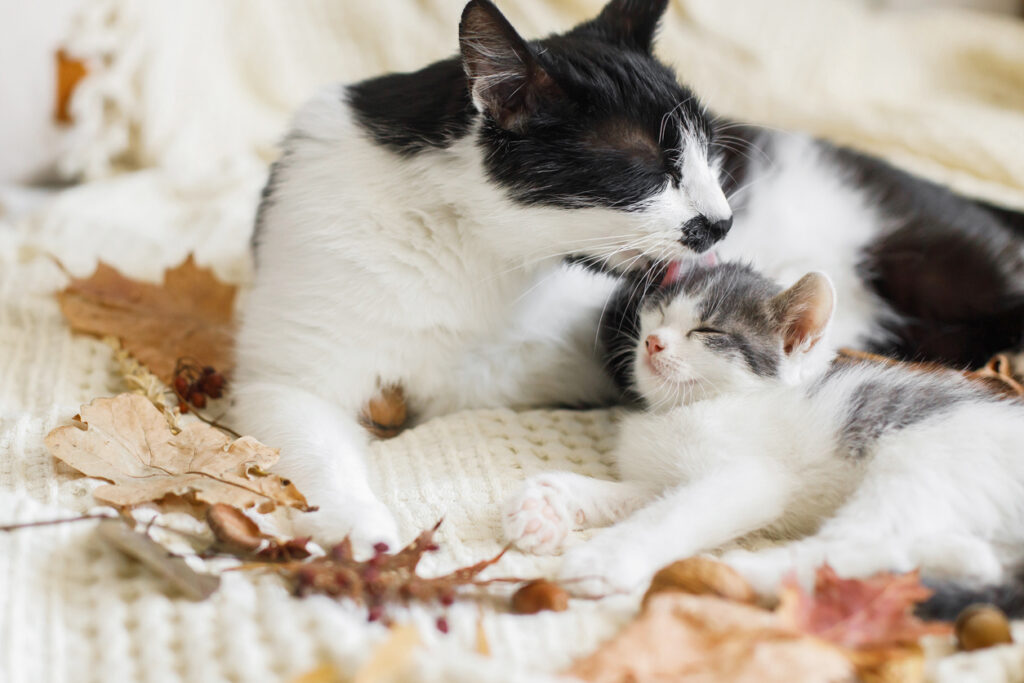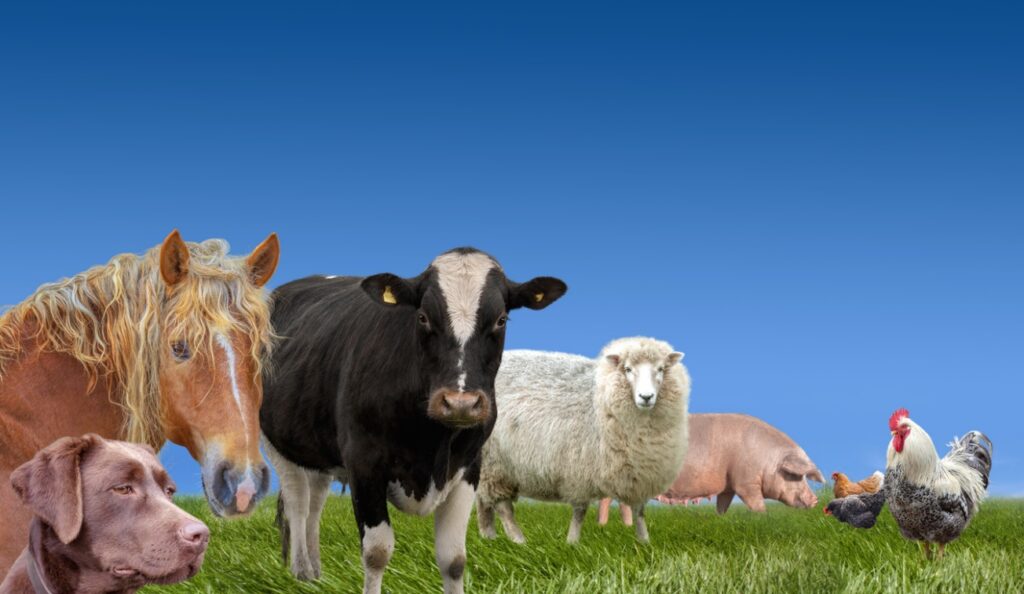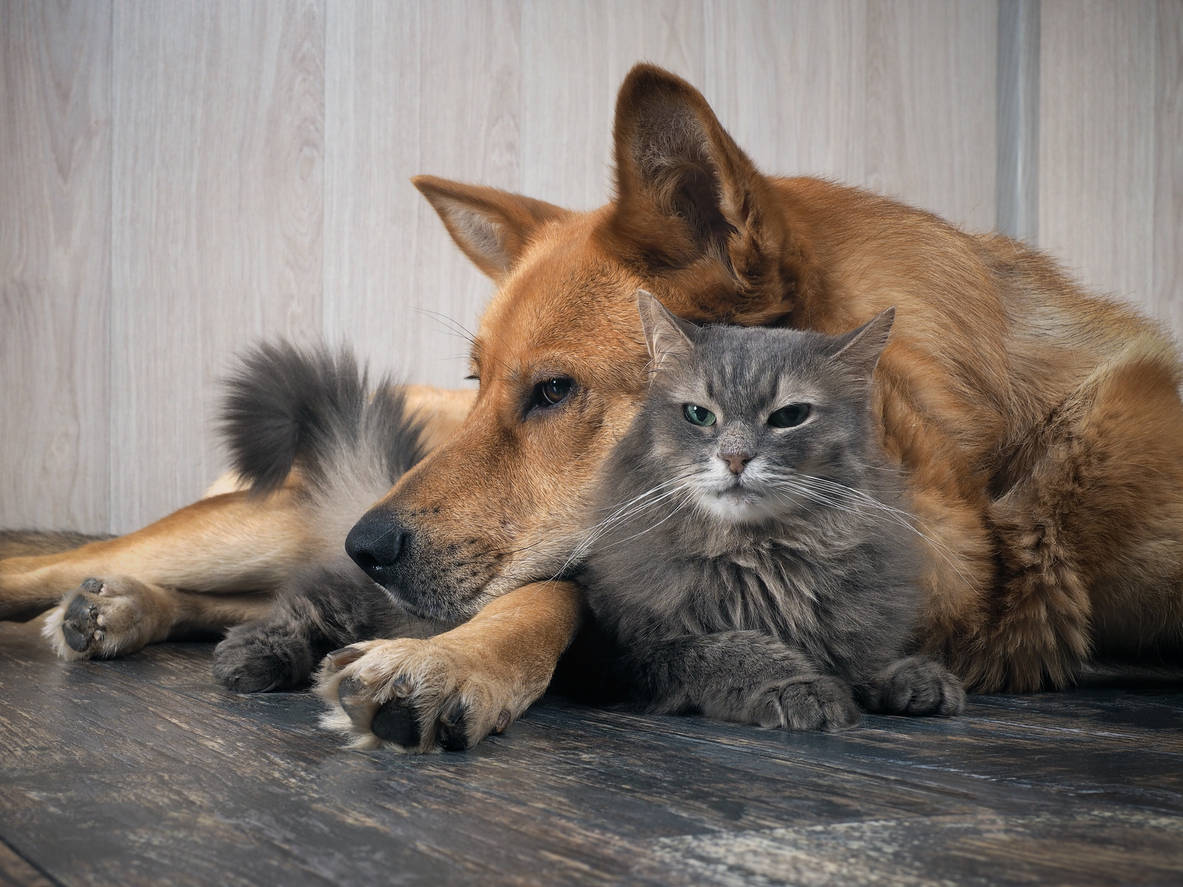Vaccinating your pets or livestock is critical to keeping them healthy and safe from disease. It is essential to stay informed about the vaccinations they need. August is National Pet Immunizations Awareness Month, dedicated to educating pet and livestock owners on the importance of vaccinations. We aim to empower you with knowledge about vaccinations for dogs, cats, and livestock so you can protect your beloved animals from preventable diseases.
Reasons to Vaccinate Dogs, Cats, and Livestock
Vaccines help your animal’s immune system to fight disease by stimulating the production of antibodies. Antibodies identify and destroy disease-causing organisms. Vaccines prevent diseases that can be passed between animals and from animals to people. Diseases prevalent in wildlife, such as rabies and distemper, can infect unvaccinated animals. By vaccinating your pets and livestock, you can avoid costly treatments for preventable diseases and save lives.
According to Nevada Code § 441A.435, a dog or cat must be vaccinated against rabies with a vaccine that is designed to provide protection from rabies for 3 years and mustmaintain the dog, cat or ferret currently vaccinated against rabies.
Vaccinations for Young Animals

Very young animals are highly susceptible to infectious diseases because their immune system is not yet fully mature. They receive protection through antibodies in their mother’s milk, but this protection is short-lasting, and there may be gaps as the milk antibodies decrease and their immune system is still maturing. The protection from their mother’s milk is temporary, typically lasting only a few weeks to a few months, depending on the species. As passive immunity wanes, it becomes essential to vaccinate young animals according to a recommended schedule to ensure you continue to protect against preventable diseases. Vaccination helps to build and maintain their immunity, safeguarding them throughout their lives.
In many instances, the first dose of a vaccine primes the immune system against the virus or bacteria. Subsequent doses help stimulate the immune system to produce the antibodies needed for long-term protection.
Essential Vaccinations for Dogs, Cats, and Livestock

Core Vaccines
Core vaccines are vital for all animals based on exposure risk, disease severity, or transmissibility to humans. We recommend them for most animals in a particular geographical location because they protect them from diseases most common in that area. For example, below are core vaccines for cats and dogs:
Dogs:
- Rabies
- Canine Distemper
- Canine Parvovirus Infection (CPV)
- Canine Infectious Hepatitis
- Canine Bordetella
Cats:
- Rabies
- Feline panleukopenia (FPV)
- Feline viral rhinotracheitis (FRV)
- Feline calicivirus infection (FCV)
- Feline Leukemia (FeLV)
Horses:
- West Nile Virus, Tetanus
- Influenza
- Rhinopneumonitis
- Encephalomyelitis
Non-core (Elective) Vaccines
Non-core vaccinations are for individual animals with unique needs. Our doctors will consider your animal’s risk of various preventable diseases to customize a vaccination program for optimal protection throughout their life. They will ask you questions about your animal’s lifestyle, including any expected travel to other geographical locations or possible contact with other animals or wildlife since these factors can impact your animal’s risk of exposure to certain diseases.
Vaccinations for Livestock
Vaccinations are a crucial aspect of maintaining the health and well-being of livestock animals, just as they are for dogs and cats. Livestock animals, including horses, cattle, sheep, goats, pigs, and poultry, are susceptible to various diseases that can significantly impact their health and productivity. Vaccinations help to prevent these diseases, ensuring that livestock remain healthy and productive. For instance, we commonly vaccinate cattle against diseases such as bovine viral diarrhea (BVD), infectious bovine rhinotracheitis (IBR), and clostridial diseases, which can all lead to severe illness or even death if left untreated.
Like pets, we carefully plan vaccination schedules to provide immunity before animals are exposed to pathogens. Regular vaccinations not only protect individual animals but also contribute to the overall health of the herd or flock by reducing the spread of infectious diseases. This protection is critical in a farm setting where animals are in close contact with each other. By vaccinating livestock, farmers can ensure a healthier environment, reduce the need for antibiotics, and improve the efficiency and sustainability of their farming operations.
FAQ’s About Vaccinations for Dogs, Cats, and Livestock
Do Vaccinations Ensure Protection?
For most animals, vaccination effectively prevent future diseases or decrease a disease’s severity. However, it is crucial to follow the vaccination schedule provided by our Aspen Vet Clinic veterinarians to reduce the possibility of a gap in protection.
What Are the Risks of Vaccinating My Animals?
Most animals respond well to vaccines, but some may experience adverse reactions. The most common side effects are typically mild and short-term, with severe reactions being rare. For example, a serious adverse reaction in cats is a tumor (sarcoma) that can develop weeks, months, or even years after vaccination. Improvements in vaccine technology and technique have significantly reduced the occurrence of sarcomas.
While vaccines have associated risks, you must weigh these against the benefits of protecting your animal. Let us know if you have any concerns about vaccinating your pet or livestock so we can discuss them and help you make an informed decision.
What if I miss a scheduled vaccine?
An incomplete series of vaccinations may lead to insufficient protection, making animals vulnerable to infection, especially young animals. We urge pet and livestock owners to follow the vaccination schedule and finish the series.
If you miss a vaccine schedule for your pet or livestock animals, contact Aspen Vet Clinic. We can determine if your pet needs a new vaccination series or just the missed dose. Reschedule the vaccination promptly to minimize your pet’s risk of contracting a preventable disease.
How Often Will My Animal Need to Be Vaccinated?
Many vaccinations provide adequate immunity when administered every few years, while others require more frequent schedules to maintain an acceptable level of immunity that will continually protect your animal. Your veterinarian will determine a vaccination schedule that’s appropriate for your animal.
Can Vaccinations Have Side Effects?
It is common for animals to experience some mild side effects after receiving a vaccine, usually starting within hours of the vaccination. If these side effects last for more than a day or two or cause significant discomfort for your animal, you need to contact us:
- Discomfort and local swelling at the vaccination site
- Mild fever
- Decreased appetite and activity
- Sneezing, mild coughing, “snotty nose,” or other respiratory signs may occur 2-5 days after receiving an intranasal vaccine.
More severe side effects, such as allergic reactions, may occur minutes to hours after vaccination. These reactions can be life-threatening and are medical emergencies. Seek veterinary care immediately if any of these signs develop:
- Persistent vomiting or diarrhea
- Itchy skin that may seem bumpy (“hives”)
- Swelling of the muzzle and around the face, neck, or eyes
- Severe coughing or difficulty breathing
- Collapse
A small, firm swelling under the skin may develop at the site of a recent vaccination. It should start to disappear within a couple of weeks. Contact us if it persists for more than three weeks or is getting larger.
*Important Note:Always inform us if your animal has had prior reactions to any vaccine or medication. If in doubt, wait 30-60 minutes following vaccination before taking your animal home.
Commitment to Health and Safety Through Vaccinations
In conclusion, ensuring that your dogs, cats, and livestock are up to date on their vaccinations is vital for their health and the safety of the community. Vaccinations prevent the spread of infectious diseases, protecting not only individual animals but also entire herds and flocks. By staying informed about the necessary vaccinations and adhering to the recommended schedules, you can provide your animals with the best possible defense against preventable illnesses. At Aspen Vet Clinic, we are dedicated to meet the specific needs of pets and livestock. Together, we can keep your beloved animals healthy and thriving.
Your Caring Team

